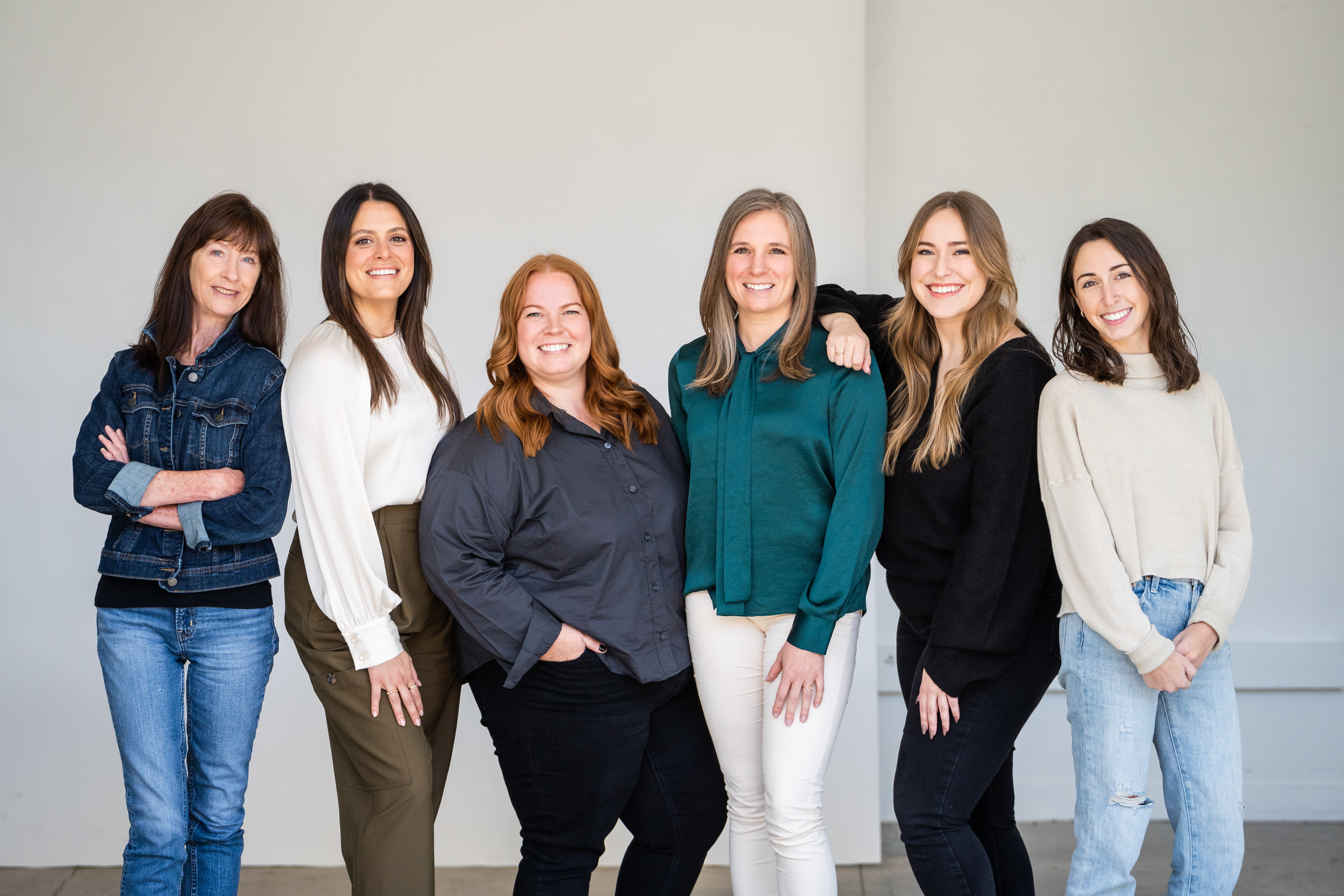Any anxious person will tell you that living with anxiety is uncomfortable and can be disheartening when it comes to solving the condition long term.
Anxiety can range from having difficulty falling asleep because of next-day activities to a panic attack where one might fear they are having a heart attack or other health scare.
There is plenty of in between, but things may seem very black and white when you are in the middle of an anxious moment.
It may not be possible to get rid of anxiety completely, however, there are ways to calm yourself down fast when you start to feel anxious.
Any anxious person will tell you that living with anxiety is uncomfortable and can be disheartening when it comes to solving chronic anxiety in the long term.
Anxiety can range from not wanting to go to sleep because of next-day activities to a panic attack.
There is plenty of in between, but things may seem very black and white when you are in the middle of an anxious moment.
Even though you may not get rid of anxiety completely, there are ways to calm yourself down fast when you start to feel anxious.
By figuring out what to expect when anxiety occurs, you can feel your feelings and reduce fear about future events.
If you already have your plan in place, you don’t have to be anxious about what to plan. It doesn’t mean that things will go perfectly, but there are ways to help yourself through your anxiety without making it worse.
People experience anxiety in a number of ways.
Common symptoms of anxiety include:
- sweaty palms
- fast heartbeat
- trouble sleeping
- grinding teeth
- clenched jaw
- stomach ache, tension in your body
- hyperarousal
- hypoarousal (dissociation or checking out)
- racing thoughts
- irritability
Your body will signal to you when it feels uncomfortable in a situation. It is your job to listen to what it is telling you.
If you feel yourself going through any of these symptoms, you can articulate your anxiety to yourself.
By naming what is happening and acknowledging your anxiety, your body will begin to calm down. This may sound like any of the internal messages below.
Speak to yourself as you would a friend who is experiencing anxiety.
“Okay, I can tell you are anxious because you are clenching your jaw. I know you don’t feel safe right now, but I will make sure you get to a safe place.”
“Hi, it seems like you are feeling anxiety right now because you have a fast heartbeat. Let’s take a few deep breaths. I know it doesn’t seem like it right now, but it will be okay. You are okay.”
“I didn’t realize that you were feeling anxiety about this. I can tell that you are feeling scared because you are having trouble sleeping. Can we get some sleep right now so that we can feel better tomorrow? Everything will be okay.”
You may feel or hear some resistance when you start to switch your internal dialogue about anxiety with yourself.
You may hear no.
You may feel no.
It’s okay. Acknowledge whatever comes up for you so that you can move forward instead of staying stuck.
Fear of the future and change can cause anxiety, so treating yourself kindly during moments when you are asking yourself to shift is important.
If you do experience anxiety despite your best efforts, there are ways to help yourself fast. The last thing you want is to worry more about your worry. Knowing that you can make everything okay for yourself again can help prevent anxiety in the first place.
Here are 5 quick tips to help calm your anxiety fast.
1. Breathe.
Anxiety can reduce breathing, especially if you are feeling a heightened state of emotion.
No matter where you are or what you are doing, connecting to yourself again through breath can help you feel more relaxed quickly.
You can choose a breathing exercise that works best for you, but an example includes the box breath.
With this breath, you
- Breathe in for the count of 4.
- Hold your breath for the count of 4.
- Release your breath for the count of 4.
- You can repeat it as many times as you need to feel calm and safe again.

Slow down your breathing. Image of a woman closing her eyes, taking deep breaths in front of a window.
2. Find your feet.
Anxiety is usually caused because you are worried about what is going to happen in the future.
Your brain may be replaying grand schemes and plans that are made up about catastrophic events.
These occurrences may feel like they have happened several times to you already, but the reality is that they are unlikely to occur.
You are doubling the pain of events that haven’t happened and are unlikely to happen. Stop torturing yourself for the adrenaline rush.
When you start to get ahead of yourself, find your feet.
Think about where your feet are in the present moment.
If your feet are standing on the ground, ask yourself if they are holding you up straight.
If you are sitting in a chair, ask yourself whether your toes are touching the ground.
Get yourself planted again.
If you can keep your feet planted firmly on the ground, you can relieve anxiety quickly by getting yourself back to the present.
You are right here, right now.
You are not in the future or the past, and you can do things that may seem difficult at first.

Notice your feet on the ground. Image from above of the lower legs of a person in white jeans, with white converse shoes, on a white floor surface.
3. Get mindful.
Sometimes anxiety can happen when you least expect it, whether it’s because of something someone said or something you are telling yourself.
It can feel like elephants are dancing on your chest. Your throat may feel constricted. It takes everything you have not to hyperventilate.
This is a good time to get mindful.
Similar to finding your feet, mindfulness can bring you back to the present moment. You got too far ahead of yourself. It’s okay.
Find your five senses to help you get in reality again.
If you woke up on edge; ask yourself what you feel, what you taste, what you hear, what you see, and what you smell.
Go through the entire process.
You will save yourself time by preventing a panic attack rather than letting things escalate.
You can do this quickly and from anywhere.
As an adult, the most important takeaway is to know that you can trust yourself to get safe again through a mindfulness practice that works fast.

Tap into your five sense. Notice what you feel, taste, see, smell, and hear. Image of a persons hand touching ground covering, mindfully.
4. Feel your emotions; they will pass.
Suffering with anxiety can make you feel alone and disconnect you from your surroundings.
Loneliness can be a feeling of not being able to communicate what is on your heart.
You may be suppressing emotions rather than letting yourself feel them.
This can feel like a jumbled mess, like there isn’t a solution and a way out of the problem.
For a short-term solution, a way to calm down quickly is to let yourself feel emotions rather than continue to bury them.
If you are feeling worried, let yourself do that.
Emotions are energy in motion so the sooner you allow yourself to feel the sooner the feeling will end.
If you struggle with feeling emotions and riding out the intensity of them, a therapist can help by providing guidance and being a witness to difficult emotions.
A mental health professional can help you to see your reality when it may feel buried or suffocating.
This is not necessarily comfortable right away, but it will help you to plan a future while staying in the present moment. To truly know you will be okay is the greatest relief when you live with anxiety. Therapists can help you see that light.

Sit with your feelings, allow them to pass. They will pass. Image of a man sitting on a couch with his feet on the ground, hands on his legs, with eyes closed.
5. Plan ahead.
The best way to help your future self be calm is to be preventative. This doesn’t mean that every problem will be solved or that things won’t happen, but you will begin to trust yourself more if you use tools to take care of your anxiety.
You can prepare for the worst while you expect the best.
You don’t need to over do it or catastrophize things that may happen.
If you know anxiety is an area of growth for you, you can plan things out for yourself. Here are a few ways to plan ahead if you find that your anxiety is starting to hinder your life. No matter what, go easy on yourself.
- Help yourself be on time when you go places. You may have to wake up a little earlier or put away your phone sooner to leave in advance, but it’s worth the effort.Hurrying up just to procrastinate is a way to perpetuate anxiety.
- Cancel plans now if you wanted to say no. Instead of flaking at the last minute, say no now.If you know you get anxious around certain people, don’t keep putting yourself in situations where you are around those people.That doesn’t mean that you never leave the house; it means you get honest about who you want to be around and then surrounding yourself with those people.
- Maintain a routine. Treat yourself as your inner child that you are putting to bed, giving a bath, and feeding nourishing meals.Have daily rituals that you love so that you can expect the same thing from yourself every time.If you are eating dinner at 10pm, it is unlikely you are going to want to fall asleep by 10:30pm.Think about what makes sense for you and your lifestyle.

Plan ahead. Make routine the things you love. Image of a two hands rolling up a yoga mat.
Anxiety can be frustrating, especially if it happens every day. Even though you may not ever get rid of anxiety completely from your life, there are tools you can use to help make things better for yourself.
You can calm down fast when you know what to expect and how to take care of yourself in the moment.
Instead of forcing yourself to calm down, allow yourself to breathe through the hard stuff.
Everyone experiences dread, overwhelm, confusion, and worry. For some, this may turn into anxiety. You can empower yourself to show up differently.
If you are struggling with chronic or excessive anxiety, reaching out to a mental health professional may be most helpful for you as you may be suffering with generalized anxiety disorder, post traumatic stress disorder, or another anxiety disorder that can be better helped through therapy.
Learn More About Denver Metro Counseling
***
Written by: Randi Thackeray, MA
Clinically Reviewed and Edited by: Julie Reichenberger, MA, LPC, ACS, ACC
Denver Metro Counseling is a group of Denver therapists who provide teen therapy in Denver, young adult therapy, adult therapy, family therapy and other counseling and therapy in Denver and throughout Colorado.
We specialize in relationships, codependency, communication and boundaries and provide supportive therapy for people struggling with life transitions, trauma, anxiety, depression, substance abuse, ADHD, negative body image, and more.
Our clinicians are trained and comfortable working with people who struggle with thoughts of suicide and work collaboratively with our clients and their loved ones to maintain safety through a trauma-informed approach. 
Meet Our Theraphttps://denvermetrocounseling.com/our-therapistsists
Follow Denver Metro Counseling on Facebook: Denver Metro Counseling and Instagram: @denvermetrocounseling to learn more.





